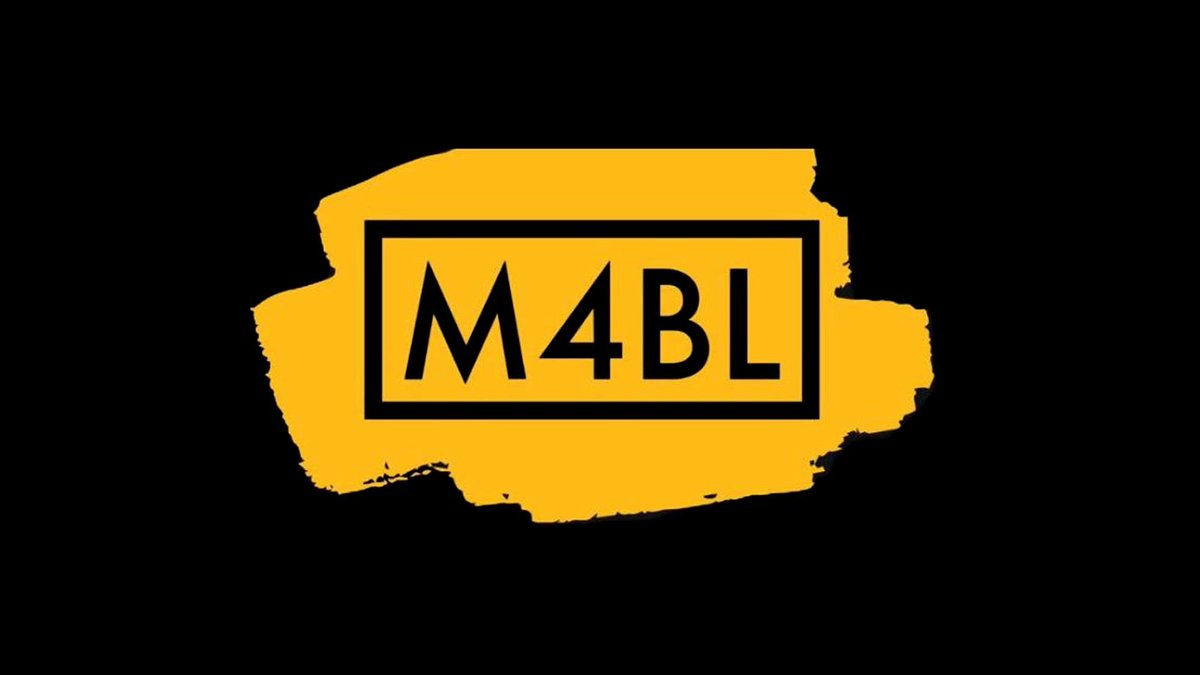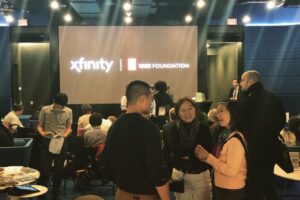Following recent momentum around the Black Lives Matter movement, many Asian-Americans have sought out ways to educate themselves on anti-Blackness, stand in solidarity with Black communities around the nation, and work with Black Americans to dismantle white supremacy. To this end, the Movement for Black Lives (M4BL) co-hosted an event with dozens of AAPI-centered organizations. The event brought together representatives from M4BL and AAPI community, creating an audience of nearly 5,000 in an urgent call for action directly from one of the most prominent forces pushing for change in the past weeks.
The event kicked off with representatives from various AAPI community organizations introducing themselves and explaining their connections to the BLM movement. They emphasized that solidarity and action must begin at home, in our interpersonal relationships, and in our own communities. Cha Vang of Hmong Organizing Politics shared her nephew Darell Richards’ story, as he was a mixed-race teenager who was shot and killed by Sacramento Police in 2018. She stated: “The advancement of our community is tied to justice for all. The movement for Black lives is the movement for our loved ones.” Echoing Vang’s call for collective justice and rising together, Hyowon Jeon, from NAKASEC, shared her story as one of 2 million undocumented Asian immigrants.
The organizers turned the conversation over to M4BL representatives to provide an overview of the movement and its demands. Organizer Maurice Mitchell honored the centuries of work that have been done by ancestors in the Black liberation struggle, noting that this struggle is about multiple levels of violence– economic, gendered, sexual, state, etc– that limits Black folks’ ability to thrive. “Because of the structural oppression,” Mitchell said, “we have to transform our social relations, our economy, and our democracy for Black lives to truly matter.” Most importantly, though, this struggle is not only for Black folks. Mitchell stated, “Black liberation promises that when Black folks win, we all win, because Black liberation requires overhauling every system of oppression, which affects Asian communities as well. As novel and scary as this moment may seem, he said, Black folks and their allies must view this time as an opportunity to reimagine what future we want, re-examine what we are willing to risk to achieve lasting change, and walk with Black folks shoulder to shoulder into that future.
The M4BL organizers introduced their goals and platforms : to defund the police; re-invest in communities and care; and for the resignation of President Donald Trump and the corporate and political actors which enable him.
The discussion then pivoted to a Q&A format. Moderators Gregory Cendana, Executive Director of the Asian Pacific American Labor Alliance, and Timmy Lu, State Organizing Director of the Asian Pacific Environmental Network, posed questions to the organizers.
The moderators asked the panelists to walk through the reasoning and impact of their call to defund the police. Organizers noted that there is nothing natural about policing and society only relies on the police after decades of heavy investment in police and disinvestment from education, healthcare, housing, and community services. Defunding the police addresses the root cause that makes police brutality possible and requires re-investing those resources into Black communities and Black lives. Maurice Mitchell recommended Mariame Kaba’s New York Times op-ed as a great resource for beginners.
Next, moderators asked: how do we balance the need to follow Black leadership while also giving Black community space to heal and not asking too much from those same leaders? M Adams, co-director of Freedom Inc, said that in her own work, organizing Black and Southeast Asian communities, they have been able to build a deep ideological alignment between the groups. Black Lives Matter organizer Nikita Mitchell also said “solidarity is not a science, but a commitment to a practice.” Therefore, AAPI folks should be willing to take accountability for those mistakes and must be committed to taking action and learning over the long-term.
The moderators then asked how Asian Americans can address anti-Blackness in AAPI communities, while also dealing with colorism within and between AAPI communities. Cha Vang, Hyo-Won Jeon, and Chhaya Chhoum of Mekong NYC took the lead here, noting that change starts by having conversations with family members and community members. Chhaya emphasized the importance of “calling in” the elders in one’s community by unpacking colonialism and imperialism that diasporic folks from Vietnam, Laos, and Cambodia, among others, have faced as a result of US imperialism and war abroad. Jeon elaborated on historical solidarities, reminding the audience to remember the natural connections existing between our communities. She stated, “Our racialization is always in dialectic with anti-Blackness,” pointing to the 1996 and 1965 Immigration Bills as examples of how Asian-Americans have been deemed “model minorities” at the expense of Black Americans. Overall, the organizers emphasized drawing from the historical frameworks that diaspora members are likely to already understand to have deep and productive conversations about the systemic violence and racism Black folks face today.
The moderators asked the panelists how to effectively communicate with centrists, regarding defunding vs. reforming police. The panelists noted that society is familiar with defunding programs that benefit working people to invest in the prison-industrial complex, military, and police. Highlighting that capitalism disproportionately negatively impacts POCs, especially Black folks, , the organizers stated common sense shows that our present system does not treasure and protect life. Mitchell and others detailed that this moment is an invitation to be bold and radically rethink what is possible. It’s okay that that makes people uncomfortable because anti-racist activists are disrupting the paradigm/present reality. All marginalized groups are benefactors of radical thought, and have histories of radical movements, radical actors, resistors, and freedom fighters who have fought tooth and nail for the rights we enjoy today. Abolishing slavery was also once seen as impractical and impossible, yet we now understand abolitionists to be on the right side of history. Therefore, Americans seeking racial justice cannot betray this moment with anything less than radical imagination and possibility.
Lastly, the moderators asked : how would you explain collective liberation to someone on the street, that liberation of Black people means the liberation of all people? Maurice Mitchell responded: “One of the things that makes it difficult for us to come together to face an existential threat like state violence against Black people or climate change is white supremacy. The fact is that white working-class white folks are organized around the solidarity of whiteness; they are aligned with white billionaires over poor black folks. White supremacy is a form of solidarity and if we don’t build a form of solidarity powerful enough to oppose and overcome it, then we cannot amass a solidarity powerful enough to overcome these systems.” Nikita Mitchell summarized this, stating, “We cannot think of these issues as individual rather than collective. Rather, it will take all of us to undo structural oppression and ensure we can live in our full dignity and humanity.” Finally, organizers pointed to Black radical feminist scholars and collectives like Claudia Jones and the Combahee River Collective for further reading and learning.
In closing, the organizers and participants thanked the audience and asked them to commit to taking action for the movement. To learn more about the racial justice movement and access resources for Asian-Americans seeking to educate themselves and community members (in English and beyond), please find a compiled list of resources here.



